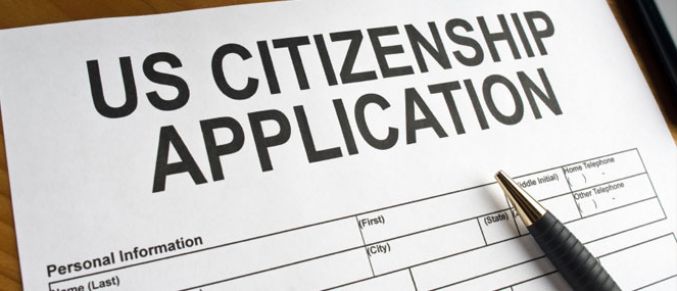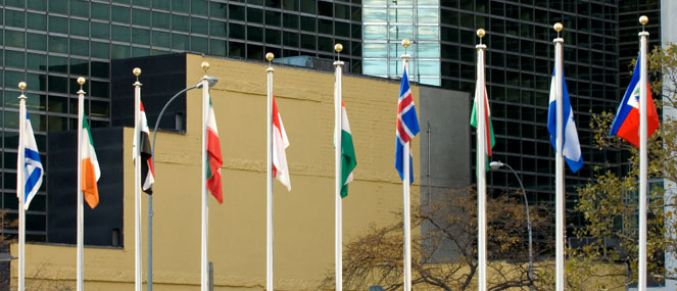Treaty Traders and Treaty Investors (E-1 and E-2 Visas)
The E-1 or E-2 nonimmigrant classification allows a national of a treaty country (a country with which the United States maintains a treaty of commerce and navigation) to be admitted to the United States to carry on substantial trade, including trade in services or technology, principally between the United States and the treaty country or to develop and direct the operations of an enterprise in which the national has invested, or is in the process of investing a substantial amount of capital. Certain employees of such a person or of a qualifying organization may also be eligible for these classifications. See U.S. Department of State’s Treaty Countries for a current list of countries with which the United States maintains a treaty of commerce and navigation.
Requirements: Treaty Trader (E-1)
- The applicant must be a national of a country with which the United States maintains a treaty of commerce and navigation
- The trading organization for which the applicant is coming to the U. S. must have the nationality of the treaty country
- The international trade must be “substantial” in the sense that there is a sizable and continuing volume of trade (More than 50 % of the international trade involved must be between the U.S. and the country of the applicant’s nationality)
- Trade means the international exchange of goods, services, international banking, insurance, transportation, tourism, and technology. Title of the trade items must pass from one party to the other
- The applicant, or the employee of a treaty trader, must be employed in a supervisory or executive capacity, or possess highly specialized skills essential to the efficient operation of the firm. Ordinary skilled or unskilled workers do not qualify
Requirements: Treaty Investor (E-2)
- The investor, either a real or corporate person, must be a national of a treaty country.
- The investor must have invested or be in the process of investing a substantial amount of capital in a bona fide enterprise in the U.S. A substantial amount of capital is:
- Substantial in relationship to the total cost of either purchasing an established enterprise or establishing a new one
- Sufficient to ensure the treaty investor’s financial commitment to the successful operation of the enterprise (An investment of at least $100,000 should be sufficient to be considered substantial by USCIS)
- Substantial in relationship to the total cost of either purchasing an established enterprise or establishing a new one
- Of a magnitude to support the likelihood that the treaty investor will successfully develop and direct the enterprise (The lower the cost of the enterprise, the higher, proportionately, the investment must be to be considered substantial)
- The investment must be a real operating enterprise (bona fide). A bona fide enterprise is a real, active, and operating commercial or entrepreneurial undertaking which produces services or goods for profit.It must meet applicable legal requirements for doing business within its jurisdiction
- Speculative or idle investment, such as purchasing a home in the U.S., is not enough to qualify for an E-2 visa. Uncommitted funds in a bank account or similar security are not considered an investment
- The investment may not be marginal. It must generate significantly more income than just to provide a living to the investor and family. The investment must have a significant economic impact in the United States by creating jobs for individual with employment authorization
- The investor must have control of the funds, and the investment must be at risk in the commercial sense with the objective of generating a profit. The capital must be subject to partial or total loss if the investment fails (Loans secured with the assets of the investment enterprise are not allowed)
- The investor must be coming to the U.S. to develop and direct the enterprise. If the applicant is not the principal investor, he or she must be employed in a supervisory, executive, or highly specialized skill capacity (A principal treaty investor must own 50% of the bona fide U.S. enterprise)
- The treaty investor must show that the funds have not been obtained, directly or indirectly, from criminal activity
Change of Status to E-1 or E-2 Classification
If the treaty trader or investor is currently in the United States in a lawful nonimmigrant status, he or she may request a change of status to an E-1 or E-2 classification. If the desired employee is currently in the United States in a lawful nonimmigrant status, the qualifying employer may file a nonimmigrant petition on the employee’s behalf.
E-1 or E-2 Classification if Applicant is outside the United States
If the applicant is outside of the U.S., then he or she will have to go through Consular Processing by submitting an application to the U.S. Consulate located in the applicant’s home country and attending a short interview in front of a Consulate officer. Many applicants prefer Consular Processing because it allows them to freely travel to and from the U.S. after obtaining their nonimmigrant visa. An applicant who receives their visa in the U.S. and chooses to depart the country, must re-apply for the E1 or E-2 visa at the U.S. Consulate abroad in order to re-enter the U.S. Consular Processing is less time consuming and prevents the applicant from having to go through the application process more than one time.
Duration of Visa
Qualified treaty traders, investors, and employees will be allowed a maximum initial stay of five years. There is no maximum limit to the number of extensions an E-1 or E-2 nonimmigrant may be granted as long as the treaty trader or investors are complying with the rules and regulations of the visa. All E-1 and E-2 nonimmigrant must prove to USCIS that they have an intention to depart the U.S. when their status expires or is terminated.
An E-1 or E-2 nonimmigrant who travels abroad may generally be granted an automatic two-year period of readmission when returning to the United States if his or her visa is still valid at the time of re-entry.
Family of E-2 Treaty Investors and Employees
Treaty investors and employees may be accompanied or followed by spouses and unmarried children who are under 21 years of age. Their nationalities need not be the same as the treaty investor or employee. Spouses may apply for employment authorization and children are allowed to study while the primary E-1 or E-2 is maintaining his or her valid status.
The attorneys at the Law Office of Yuri Tsyganov, PL have extensive experience in all issues concerning immigration law, including E-1/2 investor visa petitions. Call today for a Free Consultation.

 YuriTsyganov
YuriTsyganov










